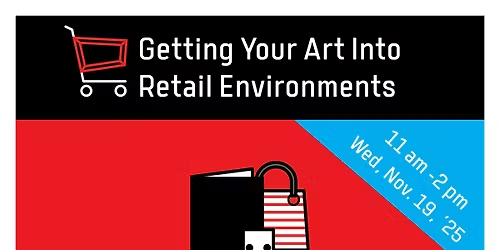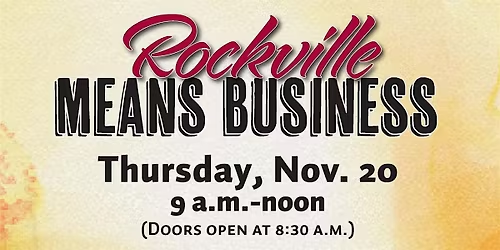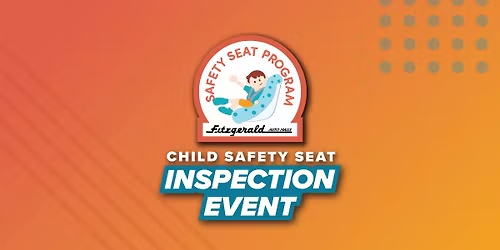
About this Event
The field of generic ophthalmic drug products is rapidly evolving, with increasing complexity in drug product formulations and devices, leading to challenges in assessing performance sameness and ensuring quality. In response to these evolving complexities, this workshop is designed to address the latest advancements and regulatory challenges in the field, offering a unique platform to engage with all relevant parties, share knowledge, and contribute to the evolution of generic development and regulatory assessment.
Attendees will gain valuable insights into the intricacies of developing ophthalmic products, including insertable, implantable, and topical ophthalmic therapies. In addition to a series of expert-led presentations and panel discussions, in-person attendees will interact directly with regulators, industrial peers, and academic experts in small group working sessions to deepen their understanding of current practices and challenges, regulatory expectations, and emerging trends.
Specifically, the two-day workshop will cover critical issues such as in vitro drug release testing, qualitative (Q1) and quantitative (Q2) sameness of complex ingredients in ophthalmic products, formulation characterization, considerations for clinical bioequivalence studies, and the challenges encountered when developing or assessing prospective generic ophthalmic products.
Registration Fees:
- This workshop is FREE for virtual attendees.
- The combined cost for the two-day workshop in-person attendance and activities is:
- $350, in-person attendees - general
- $150, in-person attendees - government (must have an email ending in ".gov" to register at this rate)
For in-person attendees, beverages and food for breaks will be provided; lunch is not included. A link will be provided closer to the event for ordering lunch each day.
For faculty and students from the University of Maryland, Baltimore; The Universities at Shady Grove; and University of Michigan, the workshop is free for in-person attendance. Other students, please email CRCG for a reduced rate. Contact CRCG at ([email protected]) and indicate which workshop you are interested in.
Continuing education (CE) credits will not be provided for attending this workshop. A certificate of attendance will only be provided to individuals attending the workshop in-person, when requested.
Agenda
🕑: 08:50 AM - 11:40 AM
D1 S1: Ophthalmic Product Standards and General BE Considerations
Info: This session provides a regulatory and scientific foundation for establishing bioequivalence in ophthalmic drug products. Topics include the impact of FDA research on ophthalmic drug development, Q3 characterization, and challenges with compositional sameness. Experts will discuss the influence of formulation changes such as preservative substitutions, regulatory expectations for in vitro release testing, and strategies for addressing scientific hurdles in ANDA submissions.
🕑: 12:40 PM - 03:00 PM
D1 S2: Regulatory Science Applied to Ophthalmic Dispersion Products
Info: Focusing on ophthalmic dispersions and suspensions, this session examines in vitro and in vivo bioequivalence approaches, pharmacokinetic/pharmacodynamic assessment, and modeling frameworks to support generic product development. Speakers will present case studies and practical considerations, including common deficiencies and innovative regulatory science tools for bioequivalence evaluation.
🕑: 04:00 PM - 05:30 PM
D1 S3: Session 3: Small-Group Sessions (In-person only)
Info: • In this collaborative session, participants will join small-group discussion tables facilitated by FDA, industry, and academic experts. In-Person Attendees will engage in discussions and exercises related to Q1/Q2 sameness, physicochemical characterization, IVRT method development, quality considerations, and drug-device combination products within the scope of ophthalmic products. Attendees will engage in guided discussions, consensus mapping, and reporting of actionable research or policy recommendations. Direct interactions with experts from FDA, industry, and academia will be fostered.
🕑: 09:10 AM - 11:40 AM
D2 S4: Regulatory Sci Applied to Ophthalmic Insertable & Implantable Products
Info: This session explores advanced regulatory science considerations for long-acting ophthalmic products such as inserts and implants. Experts will discuss performance characterization, analytical strategies for polymeric systems, reverse engineering approaches, drug product characterization, bioequivalence, and in vitro/in silico predictive methods. Additional topics include quality challenges and best practices for ensuring consistent product performance.
🕑: 01:00 PM - 03:05 PM
D2 S5: Regulatory Science Applied to Drug-Device Combination Products
Info: The final hybrid session focuses on regulatory and technical challenges associated with ophthalmic drug-device combination products. Topics include comparative threshold analysis, device usability testing, lessons learned from ANDA submissions, and quality considerations for delivery systems. Both FDA and industry perspectives will inform strategies to navigate this evolving space effectively.
🕑: 03:20 PM - 05:00 PM
D2 S6: Small-Group Discussion Tables (In-person only)
Info: • In this collaborative session, participants will join small-group discussion tables facilitated by FDA, industry, and academic experts. In-Person Attendees will engage in discussions and exercises related to Q1/Q2 sameness, physicochemical characterization, IVRT method development, quality considerations, and drug-device combination products within the scope of ophthalmic products. Attendees will engage in guided discussions, consensus mapping, and reporting of actionable research or policy recommendations. Direct interactions with experts from FDA, industry, and academia will be fostered.
Event Venue & Nearby Stays
The Universities at Shady Grove, 9630 Gudelsky Drive, Rockville, United States
USD 0.00 to USD 350.00








